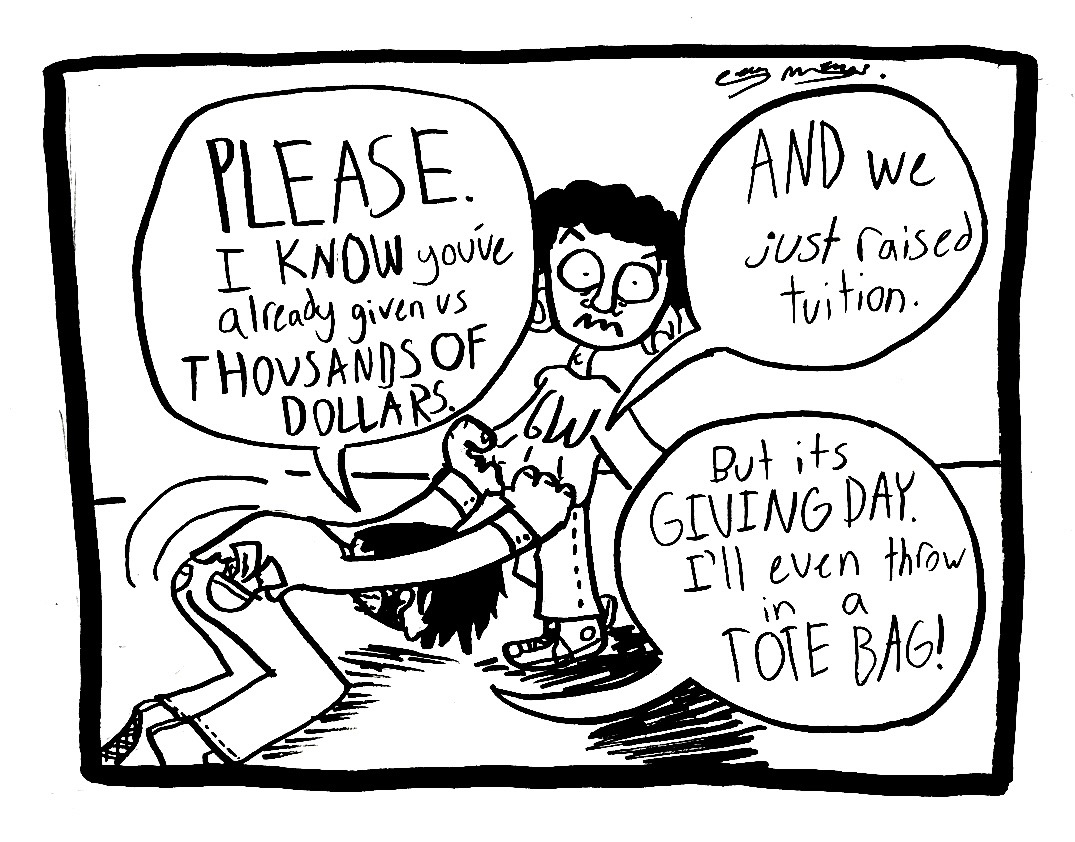After the U.S. presidential election, I didn’t think much could restore my faith in the American people. For me and others who were disappointed by the election’s results, our belief in the democratic electoral system was diminished. But, thankfully, a group of women came together – first on Facebook and then in real life – to give me and many others hope. They showed us that as American citizens, we still had the power to raise our voices and remind U.S. President Donald Trump of our rights, regardless of our gender.
On Jan. 21, approximately 500,000 people gathered on the streets of D.C. to march for the rights of women, the LGBT community and minorities in the Women’s March on Washington. Dozens of speakers, from Scarlett Johansson to Alicia Keys to Sen. Tammy Duckworth, D-Ill., to the daughter of Malcolm X, were there to express the importance of women’s rights, regardless of race or socioeconomic status. Being at the march and seeing the thousands of women, men and children raising their hand-made signs and fists into the sky is a sight I will never forget.
But it wasn’t the massive crowd size or creative slogans waving around that surprised me most: It was the kindness of the people who made up this mass. I’ve been to rallies and marches before, though never of this size, and I figured I would have to watch my back for pickpockets and anti-protesters. I thought I had good reason to be concerned for my safety. On Inauguration Day Friday, there were violent protests that left buildings and private property vandalized. But among this giant group of people, I felt quite safe. We were all there for the same purpose and to support one another. For example, when the Mothers of the Movement, African American women who lost their children to police brutality, appeared on stage to express the losses of their sons, the entire crowd seemed to emit an aura of strength and sympathy.
It’s important for those who didn’t attend the march or who were concerned with the march’s intentions, to know that this was not just an anti-Trump rally. This was a day for people to come together and express our rights. It was such a frenzy of positive, passionate energy that swept you away into a sea of vagina-pink power.
The women who stood on stage before the thundering crowd had some of the most powerful speeches that I have ever heard. But there was one woman in particular that truly instilled a sense of emotion in me as I listened to her. Ashley Judd, an actress and political activist, stood on stage and presented a poem by Nina Donovan pertaining to the idea of women as sexual objects. “I am not as nasty as using your daughter for your own favorite sex symbol,” she cried as the entire crowd hushed in shock and awe at the power of her words. I felt disgusted as the profane image burned into my mind, but the words made me realize that I was not alone in my disgust at this country’s new political agenda.
Throughout my life I’ve been told by critics that my passion for women’s rights didn’t make sense. Their reasoning was that, in the U.S., women had more than enough rights. To those people, I say that I realize I am fortunate enough to not have experienced sexist violence in my life, but that doesn’t mean it doesn’t exist. Just because I have not been the target does not mean that I should ignore other’s suffering at the hands of misogyny. As more speakers emerged and spoke with conviction and emotion, I felt reassured in my own fear and anger. I found my own solace in the words of these segregated, incarcerated, sexually assaulted, dehumanized and verbally abused women. My purpose as an advocate for feminism and women’s equality was reestablished at the march and it gave me strength I hadn’t felt in months. To be part of something that truly makes a difference is a life-changing experience and something I will one day tell my children, grandchildren, nieces and nephews about.
Moving forward, the Women’s March has implemented a new campaign following the protests. This campaign consists of 10 steps, one each month for the next ten months. I plan on following this campaign closely and staying involved with women’s rights activism here in D.C. I am going to talk to my congressman about women’s reproductive health rights and why they matter. I am going to stay involved in The Hatchet and write feminist-centered posts to try and persuade the public of its importance. And finally, I will never again allow doubt or intimidation to stop me from fighting for what I believe in.
Emily Jennings, a junior majoring in communications, is a Hatchet opinions writer. Want to respond to this piece? Submit a letter to the editor.




